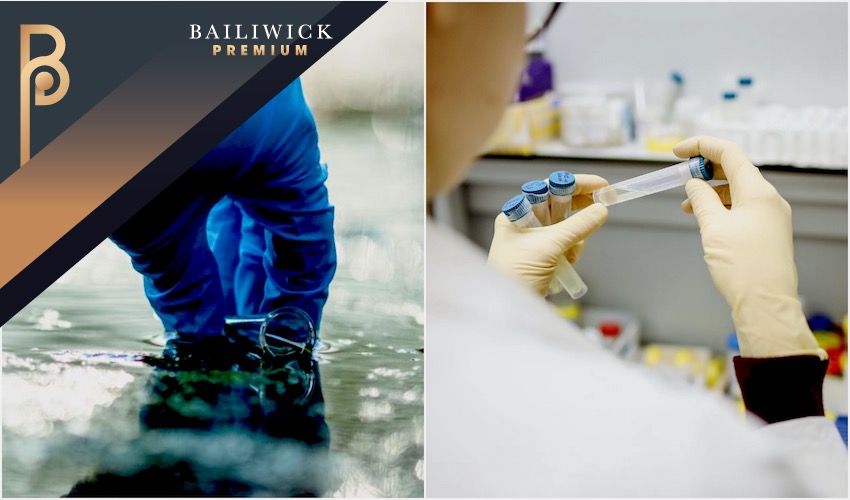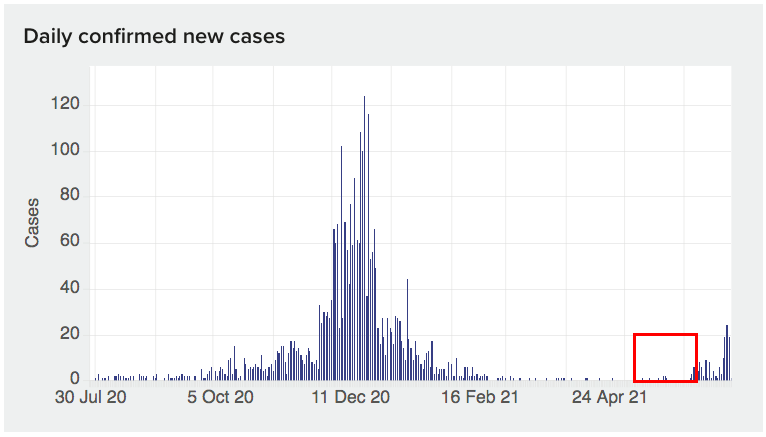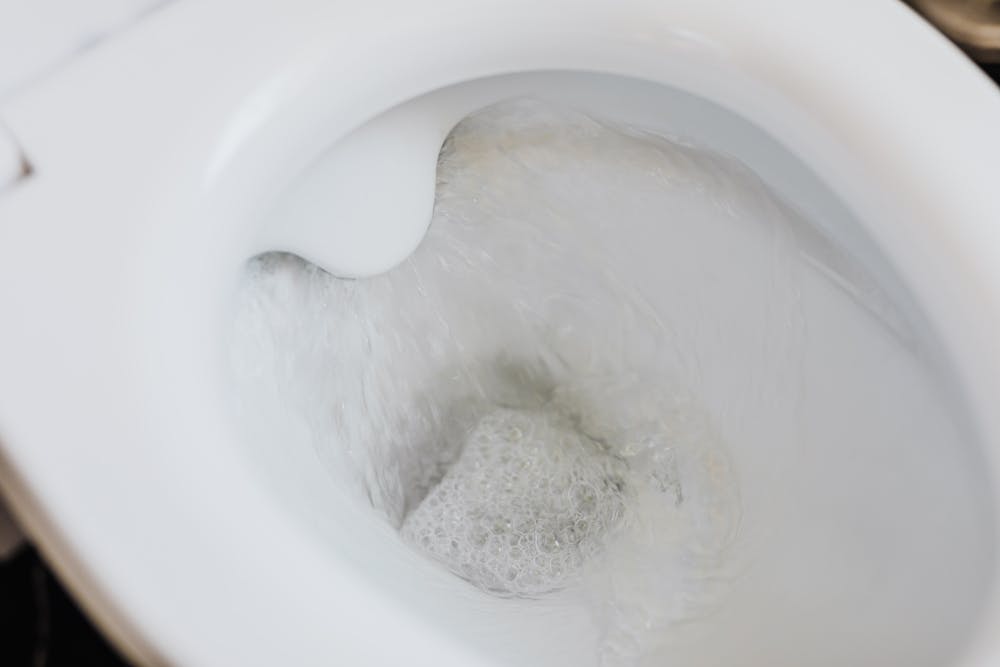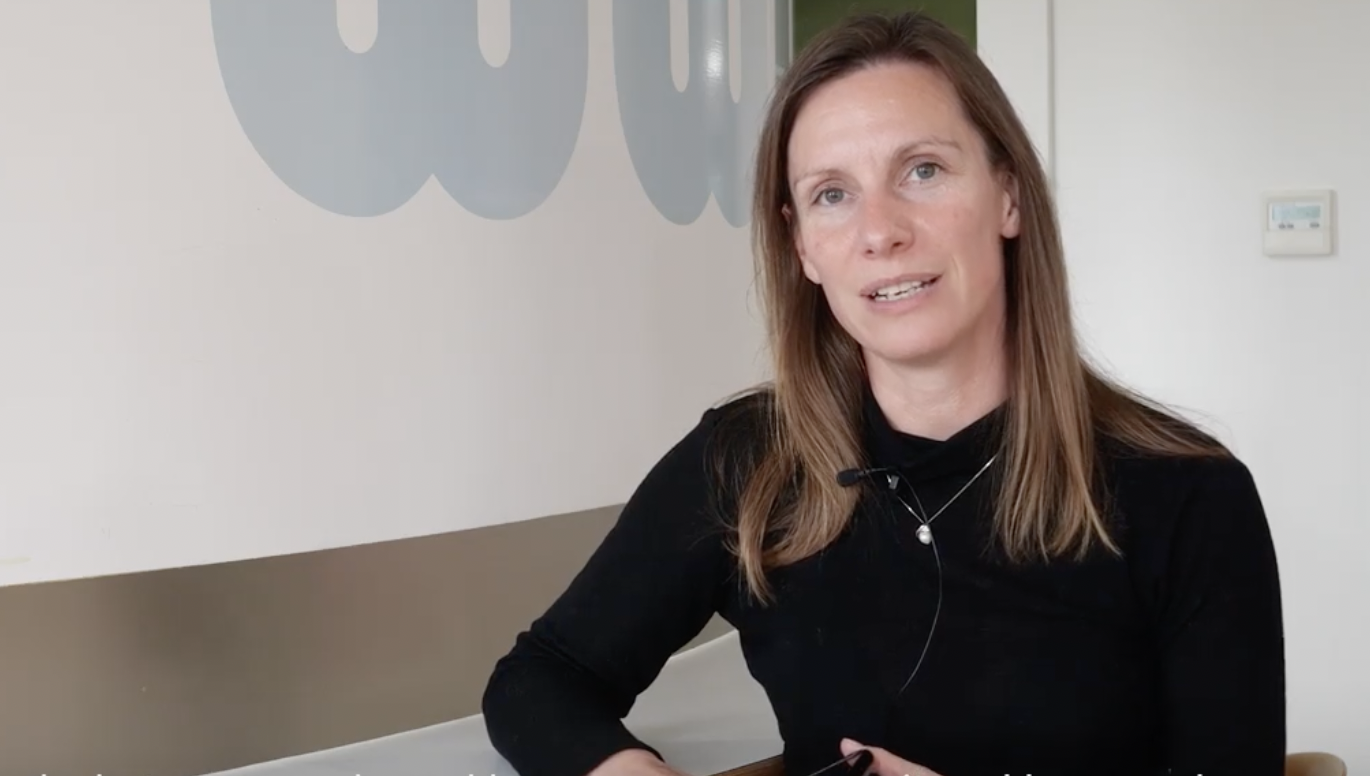


Only nine individuals tested positive for covid between May and June – but sewage testing has revealed that there were “low levels” of covid in the community the whole time.
Up to Friday 21 May, Jersey had a 53-day run with no community cases. During that time, only one to two cases at a time were being picked up, if any at all, and they were inbound travellers.
That trend was only broken on Monday 24 May, when four cases were identified at the borders and one direct contact.
But despite these very small numbers, of the 18 wastewater samples taken from 6 May to 6 June, “very low levels” of covid were present in 17.

Pictured: Positive tests between 6 May and 6 June highlighted in red.
While officials told Express the results were “consistent” with what they would expect to see, they nonetheless show a side of the story that swab testing results do not alone.
This was always the aim of the sewage testing programme.
The project to test sewage samples to detect covid was launched at the end of April, with raw sewage and faeces being extracted from treatment works.
According to Jersey's Head of Contact Tracing, Caroline Maffia, a daily sample of around 25g is taken from the Water Treatment Works, and is then frozen at minus 70 degrees.
These samples are then sent to UK labs every week to be analysed using a method devised by the London School for Hygiene and Tropical Medicine - this takes a small sample from this sample, and gives an equivalent estimate for levels per 100g.

Pictured: Between 6 May and 6 June, 17 out of 18 wastewater samples had low levels of covid.
As results come a few days later, it means the information is the information is there to help with predictions, rather than to know specific numbers of on-island cases.
Discussing how the findings assist in Jersey's battle against covid, Ms. Maffia said they help give context and a “wider picture” to the the contact tracing results, and how trends are changing in the community.
She summarised that either gives “a confidence boost in the background, or alternatively it will show us that we’re not picking up cases.”
On what the figures have shown so far, she said that during the early period of the testing, from April through to the end of May, the team had been seeing low levels.
She said that when there had been sudden spikes in levels, they had been around the time that a case was detected, with the figures appearing like a “heartbeat” on the graphs, meaning the data was aligning with PCR tests.
However, going by the more recent data they received last week, they have been seeing more indication of “background levels of covid”, with higher levels detected throughout June, as cases in the island began to rise.

Pictured: Contact Tracing Head, Caroline Maffia, explained that the wastewater samples helped to contextualise the amount of cases and direct contacts the team were observing, and whether they were missing any cases.
“We’re not far out in terms of where we’ve started to see increased numbers of cases - actually, that’s when it started to be shedded into the waste water treatment system,” she remarked.
“So unsurprisingly, it all ties together to give us an a sort of indicator as to what the situation is like on-island.”
On the latest figures, which are still being analysed, she said that the levels they have received this week, appear to be lower than the levels they were seeing two prior before, even though they are still much higher than they were in May.
Though she emphasised that it was too early to draw conclusions until full analysis had been done and further context was understood, she remarked that if they did continue to go down, it would show that the targeted contact tracing they are currently doing was working, even if numbers of direct contacts seemed high.
“It’ll be interesting to see what next Friday’s results give us, and whether or not that’s coming down again - because that will say that the contact tracing and the symptomatic people putting themselves forward to get tested, those things coming together are actually doing well to help us manage it.”
In addition, at the end of this month, they will have their first full month of data to analyse - last month, they lost two weeks' worth of samples due to a delivery issue in the UK leaving them too warm to use.
Though the current regime is testing daily, Ms Maffia did note that this frequency may reduce as the programme goes on.
“[The UK lab] have been testing it daily, but they were looking to reduce the frequency of testing dependent on what works best for us but also the resources that the team have available of it,” she said.
Looking even further into the future, Ms. Maffia noted that whilst Jersey was currently only using wastewater for testing covid, that it “is becoming more and more useful, fascinatingly in terms of what people are looking for.”
She name-checked both police searches for drugs, as well as potential detection of other viruses like norovirus, as possibilities for future use to help aid public health understanding.
An update on June’s levels and how they align with the amount of cases is expected to be presented to STAC - the Government's scientific advisory panel - this week.
Comments
Comments on this story express the views of the commentator only, not Bailiwick Publishing. We are unable to guarantee the accuracy of any of those comments.